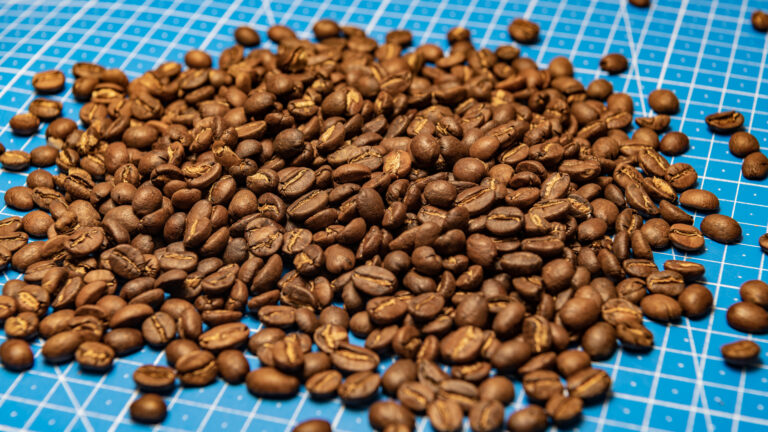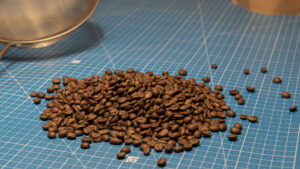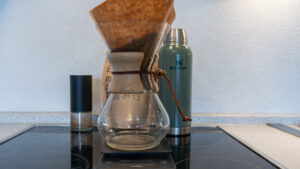
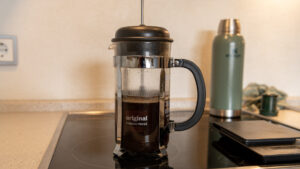
Coffee to get through the day
Years ago, I did an ocean passage from the USA to the Caribbean, and the conditions were rough. And I hadn’t achieved my current “sea legs”, so I subsisted on granola bars and water for about 4 days. I developed a nasty, persistent headache, akin to a migraine, which I couldn’t explain. But when the weather calmed down and I brewed my first cup of coffee, the headache went away and I realized that I was, indeed, addicted to caffeine!
Brewing Aboard
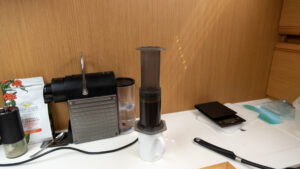
One of the great pleasures while sailing is waking up and having that first pungent cup of coffee. Since it is often difficult to find good coffee and roasted beans get stale very quickly, particularly in the tropics, I opted for a Nespresso coffee machine. The pods are filled with an inert gas, so they last for a very long time. And after turning on the machine, it heats up quickly, and within 2 minutes, I get a tasty cup of coffee and can choose which type of coffee to start the day with from my selection of pods.
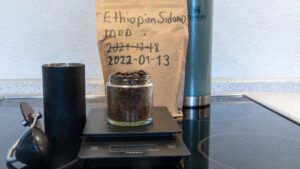
But those pods are not cheap or available everywhere, so I changed my caffeine delivery method to brewing freshly ground beans. The Aeropress Coffee Maker has become my go-to coffee brewing method aboard, closely followed by a French Press – and I also use my Bialetti (Moka Pot) frequently.
Roasting Green Beans
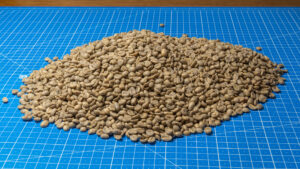
During the Corona lockdowns of 2021, I developed several new skills, including my own sourdough starter culture (named “Phred” from old Doonesbury comics) and roasting my coffee. While a cast-iron skillet will roast coffee, other devices do a much better job.
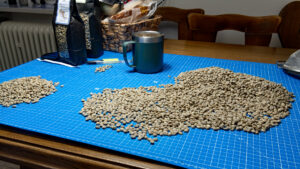
I bought a cheap popcorn maker, rewired it with temperature sensors, and programmed an Arduino microprocessor to connect to Artisan software to create unique roast profiles, but that was too unwieldy, so I now use a BEEM coffee roaster. It is almost like a popcorn popper roaster, but it has a few extra features and makes a good roast that is pretty close to an accurate roast profile.
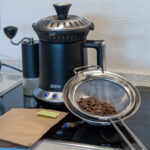
Green beans are a lot cheaper than roasted coffee and allow a lot of experimentation. I always sort my coffee manually before roasting to remove the quakers and other defective beans.

Once roasted, I manually sort them again and remove those that don’t look right or are too light, giving the batch a nice uniform color.

Preparation Methods
There are a surprising number of ways to brew coffee, from high-pressure espresso machines to slow-drip coffee, where you can wait 24 hours or more for your cuppa. All of them involve combining ground coffee (of different granularities) with water (of different temperatures) for varying amounts of time, then filtering through various materials to produce something drinkable.
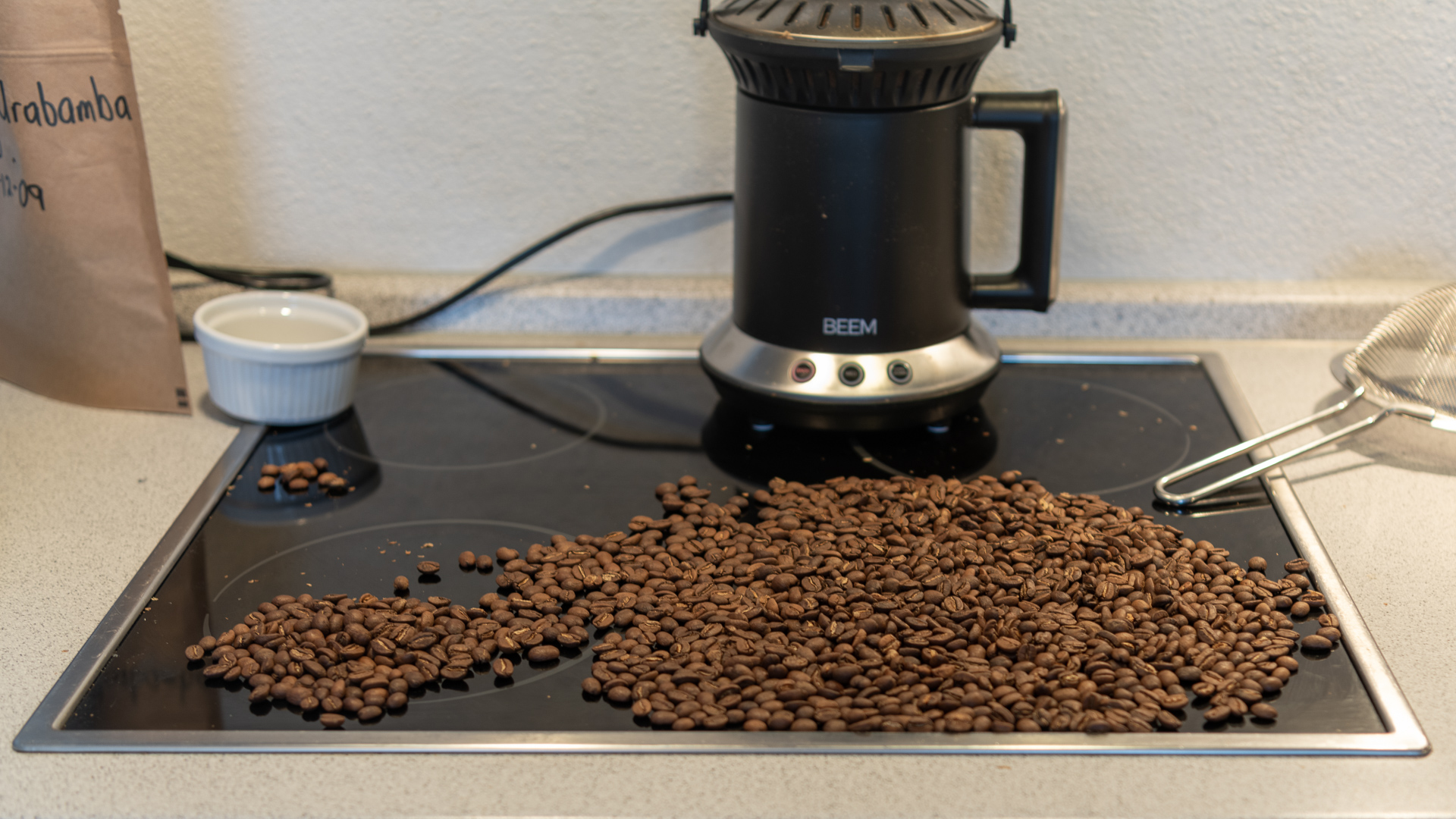
I use a Chemex, an Aeropress, a French Press, a Moka Pot, or a Melitta filter, depending on the kind of coffee I want. When in town, I’ll usually get an espresso-based drink (doppio or Latté) since I can’t make that at home. All the coffees taste good, but each is different. Each has a best time and place for consumption, and having a choice of preparation and taste styles is wonderful.
Buying Beans
I acquire my specialty coffee from a roastery in Bavaria called the Murnauer Kaffeerösterei. I usually buy Aricha from Ethiopia, but recently I saw that they had a batch of Jamaica Blue Mountain coffee and decided to give it a try. It wasn’t until I’d completed the purchase process that I realized how expensive this stuff is. But despite the steep purchase price, the resulting brew is delicious indeed! Nonetheless, I think I’ll stick with my pure African coffees going forward, as I can’t justify the cost.

